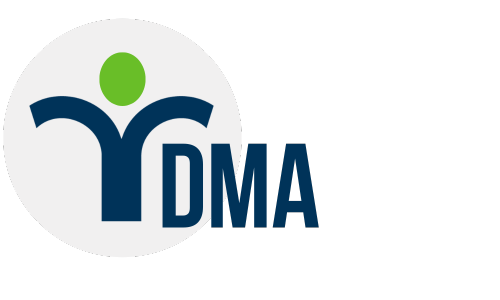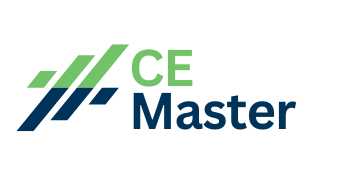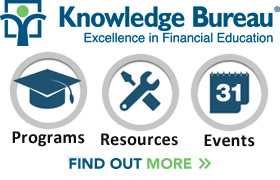
Understanding the OAS Clawback
Seniors don’t take kindly to the clawback of their OAS (Old Age Security) especially in these inflationary times, but this can happen, especially if there was an unusual receipt of income during the past calendar year. Here’s what you need to know to explain the consequences for 2025 and 2026:Enhance Your Practice with New Advisory Skills for Small Business Accounting
 Today’s tax professionals are being asked to do more than file year-end returns—they’re being called on to interpret financial data, support decision-making, and advise business owners throughout the year. The DMA™ – Accounting Services Specialist Program from Knowledge Bureau responds to this need by providing the advanced skills and knowledge required to deliver practical, high-value accounting services to small business clients.
Today’s tax professionals are being asked to do more than file year-end returns—they’re being called on to interpret financial data, support decision-making, and advise business owners throughout the year. The DMA™ – Accounting Services Specialist Program from Knowledge Bureau responds to this need by providing the advanced skills and knowledge required to deliver practical, high-value accounting services to small business clients.
Introducing New Mastery Programs: Designed for Leaders, Built for Change
 As the pace of change accelerates across tax, finance, and wealth management, it’s never been more important for professionals to stay ahead with meaningful, flexible, and forward-thinking continuing education. That’s why Knowledge Bureau is proud to introduce the Mastery Programs Division — a new curriculum stream that delivers both depth and specialization for practitioners ready to lead with purpose. Whether you are earning CE/CPD credits, looking to customize your learning journey, or aiming to achieve designation-level expertise, the Mastery Programs Division offers powerful options tailored to your goals.
As the pace of change accelerates across tax, finance, and wealth management, it’s never been more important for professionals to stay ahead with meaningful, flexible, and forward-thinking continuing education. That’s why Knowledge Bureau is proud to introduce the Mastery Programs Division — a new curriculum stream that delivers both depth and specialization for practitioners ready to lead with purpose. Whether you are earning CE/CPD credits, looking to customize your learning journey, or aiming to achieve designation-level expertise, the Mastery Programs Division offers powerful options tailored to your goals.
Maintain Your Credentials, Advance Your Practice: Re-Licensing by June 30
 As a proud Knowledge Bureau Designate, you've earned more than a credential—you’ve earned trust, credibility, and the distinction of being part of a nationally recognized network of leading professionals. To maintain your active status and continue enjoying the full benefits of your designation, it’s important to complete your annual re-licensing requirements by June 30. Not a Designate? Join this growing group of professional advisors in the tax, accounting and financial services. Learn more about the VIP Grad experience too!
As a proud Knowledge Bureau Designate, you've earned more than a credential—you’ve earned trust, credibility, and the distinction of being part of a nationally recognized network of leading professionals. To maintain your active status and continue enjoying the full benefits of your designation, it’s important to complete your annual re-licensing requirements by June 30. Not a Designate? Join this growing group of professional advisors in the tax, accounting and financial services. Learn more about the VIP Grad experience too!
The Gateway: Maximizing the Impact of the Disability Tax Credit
 In addition to reducing income tax through a non-refundable credit, the Disability Tax Credit (DTC) serves as a gateway to a wide range of additional tax benefits and government programs. Eligibility for the DTC can unlock enhanced credits, financial supplements, and long-term savings opportunities that go well beyond the tax return. Understanding how the DTC connects to these broader supports is essential for maximizing financial stability—both for individuals living with disabilities and the family members who support them. Unfortunately, many taxpayers miss this credit and their tax and financial advisors can certainly help when this happens.
In addition to reducing income tax through a non-refundable credit, the Disability Tax Credit (DTC) serves as a gateway to a wide range of additional tax benefits and government programs. Eligibility for the DTC can unlock enhanced credits, financial supplements, and long-term savings opportunities that go well beyond the tax return. Understanding how the DTC connects to these broader supports is essential for maximizing financial stability—both for individuals living with disabilities and the family members who support them. Unfortunately, many taxpayers miss this credit and their tax and financial advisors can certainly help when this happens.
At a Crossroads? The Self Employed in Canada
 The tax filing profile for the self employed is coming up fast: June 16,2025. These proprietors file T1 returns and report net income, which is subject to tax and also Canada Pension Plan (CPP) contributions upon filing. There can also be losses which offset other income of the year. Regardless, their tax and financial planning needs are unique, especially because they are at greater risk of audit by CRA and also of having too many eggs in one basket. . .their business.
The tax filing profile for the self employed is coming up fast: June 16,2025. These proprietors file T1 returns and report net income, which is subject to tax and also Canada Pension Plan (CPP) contributions upon filing. There can also be losses which offset other income of the year. Regardless, their tax and financial planning needs are unique, especially because they are at greater risk of audit by CRA and also of having too many eggs in one basket. . .their business.
Subcontractor or Employee?
 What are the implications of misclassifying workers as independent contractors to avoid paying statutory deductions? From a CRA point of view, plenty, and the consequences can be very expensive. At a time when terminations and layoffs due to uncertainty in the current business environment are occurring, getting these classifications right is important. There may, in fact, also be a legal requirement to pay severance to independent contractors.
What are the implications of misclassifying workers as independent contractors to avoid paying statutory deductions? From a CRA point of view, plenty, and the consequences can be very expensive. At a time when terminations and layoffs due to uncertainty in the current business environment are occurring, getting these classifications right is important. There may, in fact, also be a legal requirement to pay severance to independent contractors.

